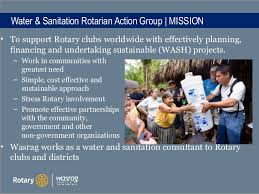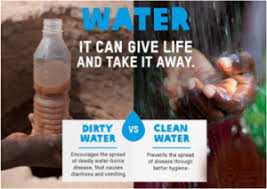
Clean water, sanitation, and hygiene education are basic necessities for a healthy environment and a productive life.
When people have access to clean water and sanitation, waterborne diseases decrease, children stay healthier and attend school more regularly, and mothers can spend less time carrying water and more time helping their families.
In rural Ghana, Rotary members supply clean water and sanitation facilities to prevent the spread of infectious diseases.
Clean water is a basic need for human beings. When people, especially children, have access to clean water, they live healthier and more productive lives. However, at least 3,000 children die each day from diseases caused by unsafe water, which is what motivates our members to build wells, install rainwater harvesting systems, and teach community members how to maintain new infrastructure.
While very few people die of thirst, millions die from preventable waterborne diseases, providing the impetus for our members to also improve sanitation facilities in undeveloped countries. Members start by providing toilets and latrines that flush into a sewer or safe enclosure and then add education programs to promote hand-washing and other good hygiene habits.

 Pagosa Springs Rotary Club
Pagosa Springs Rotary Club